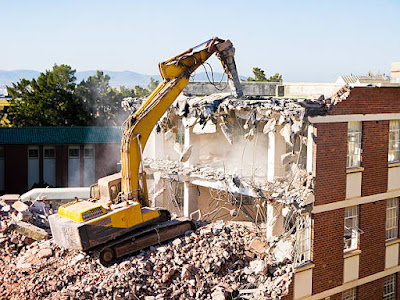The Waste Maze: A Guide to Sustainable Construction Waste Management
Managing waste is an essential aspect of the fast-paced construction industry that has a direct impact on project efficiency and the environment. Ensuring the sustainable and responsible management of waste relies critically on construction waste disposal services. We will explore the complexities of construction waste management in this blog, guiding how to manage and get rid of construction waste in an efficient manner.
Comprehending Construction Waste
Construction sites generate a diverse array of waste materials, ranging from concrete and wood to metals and plastics. Recognizing and categorizing these different waste types is the first crucial step in proficient construction waste management. Proper identification enables efficient segregation, recycling initiatives, and collaboration with specialized Construction Waste Disposal Services, ensuring a responsible and sustainable approach to handling construction waste.
The Importance of Construction Waste Management
Effective waste management lowers the impact on the environment while also lowering costs and maintaining compliance with regulations. Adopting responsible practices is essential to reducing the harm to nearby ecosystems and communities.
Critical Strategies for Effective Construction Waste Disposal
- Separation at the Source: Start by separating waste at the point of origin. To make recycling easier, assign different materials to different bins.
- Recycling Initiatives: Support recycling initiatives for materials such as steel, concrete, and wood. Recycling saves precious resources and lessens the amount of waste that ends up in landfills.
- Collaboration with Waste Disposal Services: Ensuring professional waste management is possible by collaborating with specialized construction waste disposal services. These services can handle various kinds of construction waste because they have the knowledge and tools necessary.
- Waste Assessments: Perform routine waste audits to evaluate the kinds and amounts of waste produced. This information aids in the refinement of waste management strategies.
Benefits of Hiring a Professional to Remove Construction Waste
- Expertise: Waste management companies possess the knowledge necessary to manage various materials safely and responsibly, guaranteeing adherence to environmental laws.
- Time and Money Savings: Outsourcing waste disposal allows construction teams to focus on their core activities, potentially reducing overall project costs and saving time.
- Environmental Impact: Recycling and ecologically friendly disposal techniques are given priority by responsible waste disposal services, which lessens the environmental impact of construction activities.
Conclusion:
Managing construction waste offers a chance to improve the community and environment in addition to being a responsibility. Construction projects can effectively manage waste and secure a sustainable future for the industry by implementing ethical practices, working with specialized construction waste disposal services, and supporting recycling programs.




Comments
Post a Comment